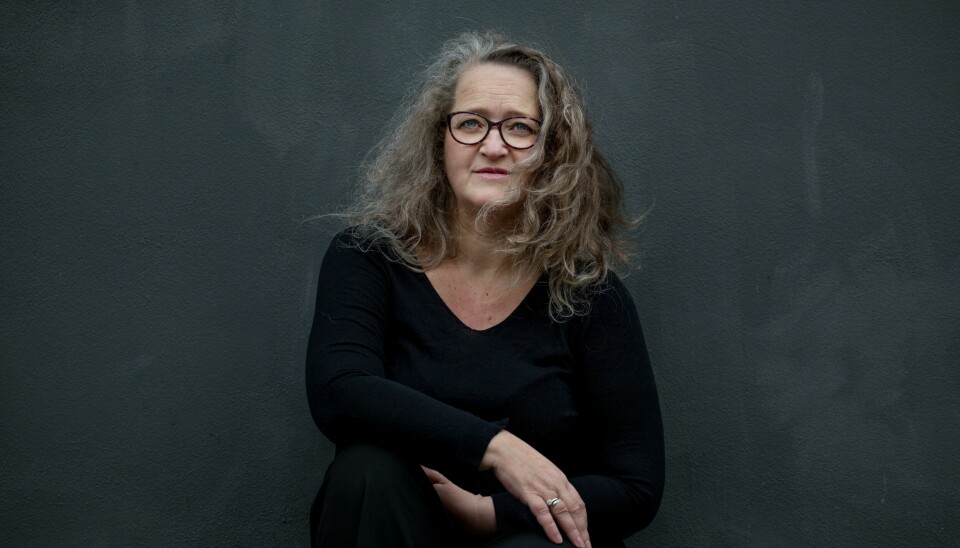English version added 30th of May, see below.
Studiedeltakerne ble ikke informert om at de ble
behandlet av studenter. Forskningsetiske instanser er kjent med saken men ser
ikke grunn til å ta grep. Er de mer opptatt av å beskytte sine egne enn av
forskningsetiske prinsipper?
En norsk studie
med 236 ME-pasienter ble publisert i april 2021. To år senere har tidsskriftet
som publiserte artikkelen, Frontiers Psychiatry, publisert en rettelse der det
informeres at en av forskerne i prosjektet, professor i psykologi Tore C.
Stiles har hatt en økonomisk interessekonflikt: Les artikkelen her.
Tar ikke
grep
I mars 2023 ble
REK Midt og Granskningsutvalget informert om dette og at det også i prosjektets
søknad om etisk godkjenning i 2008 er unnlatt å informere om denne
interessekonflikten.
I søknaden
informeres det at «i behandlingsdelen bare vil være kliniske psykologer». Nå
viser det seg at en 2.-års psykologistudent behandlet pasientene som deltok i
studien. Dette ble pasientene som deltok ikke informert om.
På spørsmål om
hvordan REK Midt og Granskningsutvalget vurderer saken og hvilke
tiltak som evt. skal iverksettes svarer REK at de «forhåndsvurderer prosjekter».
Granskningsutvalget
svarer at saken først må behandles på Forskningsetisk utvalg ved NTNU som
deretter skal rapportere saker om mulige alvorlige brudd på anerkjente
forskningsetiske normer til Granskingsutvalget.
Forskningsetisk
utvalg ved NTNU har vurdert saken og svarer at tidsskriftet (Frontiers) har utstyrt
artikkelen med en korreksjon og vurderer dette som normal prosedyre og
karakteristisk for hvordan kvalitetssikring skjer i forbindelse med
vitenskapelig publisering. «I og med at forholdet er undersøkt og feilen er
rettet, ser vi ingen grunn til å ta saken opp i Forskningsetisk utvalg.».
Forskningsetisk
utvalg synes å ta for gitt at tidsskriftets undersøkelse er tilstrekkelig og at
det stemmer at forskningskonklusjonene ikke er påvirket på noen måte. Dette til
tross for at Frontiers er regnet som et useriøst tidsskrift: Les
artikkel i UA.
Svekker tiltroen
til forskning
Siden
Coperiosenteret ble etablert av Stiles i 2002 frem til det ble solgt i 2022 har
Stiles vært medforfatter av minst 79 publiserte forskningsartikler, derav 21
kliniske studier. De fleste artiklene omhandler tema og behandling relatert til
Coperios tjenester. Tidsskriftet Frontiers har publisert 10 av disse artiklene.
Det er kun denne ene som nå opplyser om den økonomiske interessekonflikten. Coperio
har avtale med Helse Midt HF og NAV. Stiles har derfor hatt økonomisk
egeninteresse i resultatene av forskningen.
ME-pasienter er
en sårbar gruppe avhengig av NAV. Fafo-forsker Anne Kielland og
Sintef-forsker Line Melby skriver
at deres forskningsprosjekt har funnet at syke mennesker opplever å ha blitt
«tvunget» til forskningsdeltakelse av NAV:
Norge er
forpliktet til Helsinkideklarasjonen som slår fast at forskningen må følge
aksepterte vitenskapelige prinsipper og utføres av vitenskapelig kvalifiserte
personer.
At forskerne
har unnlatt å opplyse om den økonomiske interessekonflikten og unnlatt å
informere studiedeltakerne om at de skulle behandles av ikke-autorisert
personell er et alvorlig brudd på internasjonale forskningsregler. At de
forskningsetiske instansene ikke ser grunn til å ta grep svekker tiltroen til norsk
forskning.
Les forskningsartikkelen her.
Nina E.
Steinkopf:
Tidl. HMS- og Kvalitetsdirektør
Nå;
ME-pasient og skribent på www.melivet.com
Tore Stiles er orientert om Steinkops beskyldninger, men ønsker ikke å gi tilsvar. Red.anm.
English version:
Fraudulent research on vulnerable patients
In a Norwegian ME study, the researchers failed to inform that one of the researchers had a strong financial conflict of interest. The study participants were not informed that they were being treated by students. Research ethics instances are aware of the matter but see no reason to take action. Are they more concerned with protecting their own than with research ethical principles?
A Norwegian study with 236 ME patients was published in April 2021. Two years later, the journal which published the article, Frontiers Psychiatry, has published a correction in which it is informed that one of the researchers in the project, professor of psychology Tore C. Stiles, had an financial conflict of interest: https://doi.org/10.3389/fpsyt.2022.1122220
Takes no action
In March 2023, the Regional Ethics Committee (REC) and the National Commission for the Investigation of Research Misconduct (NCIRM) were informed of this and that the project’s application for ethical approval in 2008 also failed to inform about this conflict of interest.
In the application, it is informed that «there will only be clinical psychologists in the treatment section». Now it turns out that a second-year psychology student treated the patients who took part in the study. The patients were not informed about this.
When asked how REC and NCIRM assess the matter and what measures may be taken, REC replies that they «pre-evaluate projects».
NCIRM replies that the case must first be dealt with by the Research Ethics Committee at the Norwegian University of Science and Technology, NTNU, which must then report cases of possible serious breaches of recognized research ethics norms to NCIRM.
The Research Ethics Committees secretariat at NTNU has assessed the case and replies that the journal (Frontiers) has provided the article with a correction and considers this to be normal procedure and characteristic of how quality assurance occurs in connection with scientific publishing. «As the matter has been investigated and the error corrected, we see no reason to bring this up in the Research Ethics Committee.».
The research ethics committee seems to take for granted that the journal’s investigation is sufficient and that it is true that the research conclusions have not been influenced in any way. This despite the fact that Frontiers is considered a predatory journal.
Weakens the trust in research
Since the Coperio center was established by Stiles in 2002 and until it was sold in 2022, Stiles has co-authored at least 79 published research articles, of which 21 were clinical studies. Most of the articles are concerning topics and treatment related to Coperio’s services. Frontiers has published 10 of these articles. It is only this one which now discloses the financial conflict of interest. Coperio has an agreement with public health service Helse MidtHF and the Norwegian Labour and Welfare Administration (NAV).
Stiles has therefore had a financial vested interest in the results of the research.
ME patients are a vulnerable group dependent on NAV. Researchers Anne Kielland and Line Melby write that their research project has found that ME patients feel they have been «forced» to participate in research by NAV. In their opionion, recruiting vulnerable research participants through NAV is an ethical problem: “Recruiting vulnerable research participants via NAV is an ethical problem” (Norwegian text).
Norway is committed to the Declaration of Helsinki, which states that research must follow accepted scientific principles and be carried out by scientifically qualified persons.
The fact that the researchers failed to disclose the financial conflict of interest and failed to inform the study participants that they were to be treated by non-authorized personnel is a serious breach of international research rules. The fact that the research ethics bodies see no reason to take action weakens the confidence in Norwegian research.
Read the Norwegian research article here: https://doi.org/10.3389/fpsyt.2021.580924.
Written by
Nina E. Steinkopf
Formerly HSE and Quality Chief Executive
Now; ME patient and writer at www.melivet.com
































































